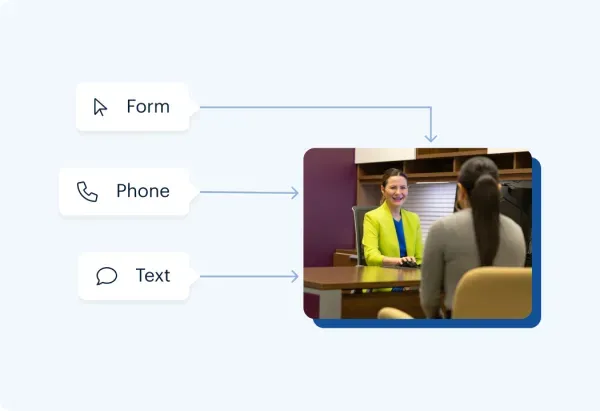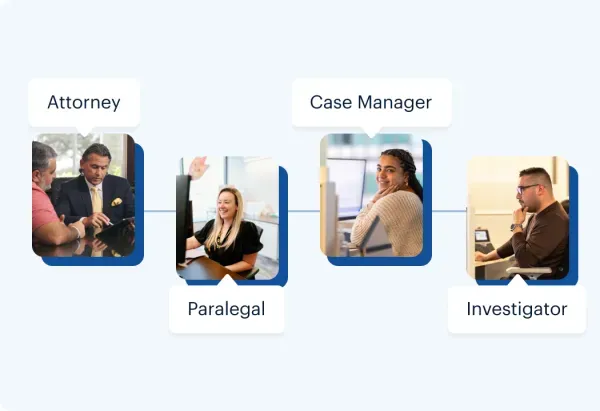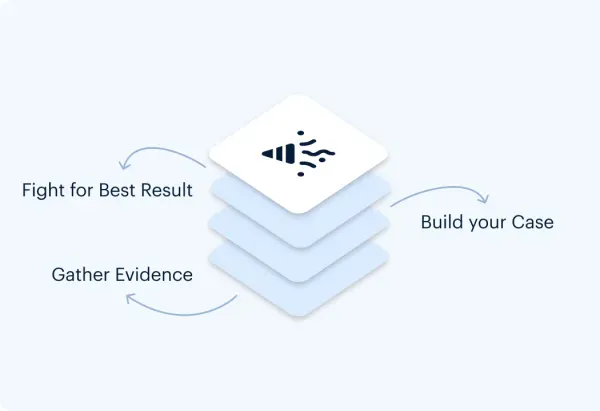Results may vary depending on your particular facts and legal circumstances. The attorney featured above is licensed in Florida. For a full list of attorneys in your state please visit our attorney page.
EVANSVILLE OVERTIME ATTORNEY
Results may vary depending on your particular facts and legal circumstances. The attorney featured above is licensed in Florida. For a full list of attorneys in your state please visit our attorney page.
Overtime Attorneys in Evansville, IN
When you work for an employer or business, you deserve to be paid fairly for the labor you provide. In fact, there are federal standards that are in place to protect employees from unfair treatment in the workplace.
Working more than forty hours in a single work week is known as working overtime. In most cases, employers are required to provide laborers with additional pay for working overtime. If your company or supervisor fails to offer you a fair pay rate for additional work, you may be able to file a claim for unpaid wages.
Evansville, IN, residents are employed in a wide range of industries, including education, health care, and manufacturing. Speaking with overtime attorneys in Evansville, IN, is crucial if you have been the victim of a wage and hour violation. Do not allow greedy employers to deny you the payment that you are rightfully due.
The accomplished Morgan and Morgan overtime attorneys in Evansville, IN, know the financial toll that wage violations can take. If you have been underpaid, our caring legal professionals can help.
We will fight diligently to secure the money your work entitles you to. In many overtime payment claims, victims can pursue damages beyond the initial amount in question.
To discuss the specific facts of your claim, reach out to the knowledgeable team at Morgan & Morgan. Our friendly staff will be glad to arrange a no-cost legal consultation with no obligation to hire our firm. Complete the contact form online to schedule your free evaluation today.
150,000+ Five Star Reviews
The reasons why clients trust Morgan & Morgan.
Results may vary depending on your particular facts and legal circumstances. Based on select nationwide reviews.
Our Results
How It Works
Unsure what to do next? With 35 years of experience, our personal
injury lawyers will guide you every step of the way.

Contact Us 24/7 - It’s Free
Start your claim

Meet your dedicated attorney
Meet the attorneys

We fight for more
Learn more about the case process
Results may vary depending on your particular facts and legal circumstances. The attorneys shown in these photos may not be licensed in your state. To find an attorney licensed in your area, please visit our attorney page.
Local Care
Backed by America’s Largest Injury Law Firm.
$30 Billion
Recovered for clients
nationwide700,000+
Clients and families
served1,000+
Attorneys across
the country1
Click may change your life
The attorney featured above is licensed in Florida. For a full list of attorneys in your state please visit our attorney page.
Results may vary depending on your particular facts and legal circumstances.
Learn More
Injured and not sure what to do next?
We'll guide you through everything you need to know.
How to Understand Wage and Hour Violations?
Under the Fair Labor Standards Act (FLSA), employees are guaranteed overtime pay rates in specific circumstances. This important piece of federal worker protection legislation has been in place since 1938.
However, employers across the country still violate their workers’ rights by underpaying for labor. This amounts to a crime known as wage theft.
According to research from the Economic Policy Institute, companies recently stole more than $3 billion in wages from workers over a three-year period. The sad truth is that wage theft is unfortunately common.
Both federal and state laws are in place to ensure that workers are treated fairly. So if you’ve been underpaid for your work, make sure to speak with overtime attorneys in Evansville, IN.
In the state of Indiana, the overtime law is known as the Indiana Minimum Wage Law. This statute is like the FLSA in that it requires employers to pay non-exempt workers an overtime rate of 1.5 times their typical hourly pay. This rate applies to all employees who provide more than 40 hours of labor in a single week.
Consider the following example: Suppose you make $20 per hour. If you are required to work 50 hours at your job in a single week, the extra 10 hours of work should be paid at 1.5 times the normal rate of $20. That is, those extra hours worked should be paid at $30 per hour.
Employers who ignore or actively violate wage and hourly payment requirements can be held liable with the help of overtime attorneys in Evansville, IN.
What are the Differences Between Federal and State Laws?
While state and federal laws both require overtime payments, wage statutes in Indiana differ from the FLSA in some ways. For instance, only employers with more than 40 workers are required to pay overtime rates.
Some employers attempt to forego overtime requirements by paying workers an annual salary. Even for salaried employees, non-exempt workers are owed overtime pay if they work more than 40 hours in a week.
Also, the statute of limitations in Indiana is different from that outlined in federal law. The federal statute of limitations in overtime payment claims is two years. Claimants have an additional year to file if the employer was violating wage and hour laws intentionally.
In the state of Indiana, workers can file a legal claim for overtime pay up to three years after the date of earning. If the underpayment was intentional, the claimant might also be able to recover additional financial compensation.
Speak with skilled overtime attorneys in Evansville, IN, to explore the legal options in your situation. You should not be underpaid for the valuable work you provide to your employer.
What are Exemptions in Overtime Pay Requirements?
Some disreputable employers will falsely tell workers they are not entitled to overtime pay. This is because tightfisted business owners have a financial incentive to underpay workers for their labor.
One way that unscrupulous employers and managers violate worker protection regulations is to misclassify their employees. Business owners may wrongly classify employees as other types of workers in an effort to skirt their responsibility to pay a fair wage.
In the state of Indiana, workers who are exempt from overtime pay rates include:
Outside Salespeople
Those workers who are primarily involved in sales outside of an office may be exempt from overtime pay. These employees may be compensated through a salary, commissions, or both.
To be exempt, workers must not spend more than 20% of their time on tasks unrelated to sales. So if your primary job function is outside sales, your employer may be exempt from providing you with overtime.
Executive
Those workers who are classified as “executives” are compensated through annual salaries. Executives are charged with the management of at least two employees.
To be exempt from overtime, executives must spend no more than 20% of their work hours on other activities. Executives are not permitted to spend more than 40% of their working hours in retail environments.
Those employees who do not meet these exemption qualifications are eligible for overtime pay.
Administrative
Administrators are exempt from overtime pay regulations because their work is not manual labor. An administrator’s primary job functions are related to training, management policy decisions, and business operations.
No more than 20% of an administrator’s time should be spent on other work-related tasks. Overtime attorneys in Evansville, IN, can review the circumstances of your claim and help you determine whether you should be classified as an administrative worker.
Professional
A professional worker has advanced knowledge of their vocational role and a significant amount of education. Some of the most common examples of those classified as “professionals” include:
- Artists
- Teachers and other educators
- Digital experts and computer specialists
These positions rely on the individual’s judgment and keen discretion. Professional positions require mostly intellectual work. As in the case of other exempt categories, professionals should spend no more than 20% of their time on other job functions.
If you have been denied overtime pay and do not fit into any of these categories, do not wait. Make sure to contact the accomplished legal experts at the firm of Morgan and Morgan to fight for the compensation that is rightfully yours.
What are The Issues of Retaliation in Overtime Lawsuits?
When you have been wrongfully denied reasonable compensation for work you provided, you have the right to seek justice. Through a civil legal claim, you may be able to secure the financial recovery that you need to move forward.
It is prohibited by law for employers to retaliate against their workers for requesting overtime pay. If you speak with a tort lawyer and file a claim, your employer is not permitted to treat you unfairly as a result.
Suppose that you are under-compensated, and you complain to your supervisor. If your boss fires you because of your complaint, this qualifies as illegal retaliation.
Retaliation is a worker protection violation that is distinct from wage theft. Regardless of the status of your overtime claim, you should speak with an employment law attorney immediately if you have been retaliated against.
Retaliation does not always take the form of termination. Other common examples of employer retaliation include:
- Unmotivated demotion
- Reassignment to a less desirable position
- Unfairly negative reviews of job performance
- Unfavorable changes in hours, scheduling, or location
- Decreases in benefits, wages, or salary
- Unfair denial of a promotion or pay raise
When you have been treated in a retaliatory manner, it is important to seek legal guidance. You should not simply accept unfair treatment from your employer or supervisor.
What Upfront Fees Will I Owe When Hiring Morgan and Morgan?
You will not pay anything upfront when you hire the accomplished legal experts at the firm of Morgan and Morgan. Our compassionate attorneys know that victims of wage and hour violations experience drastic financial challenges.
For this reason, our attorneys are compensated using contingency fees. Using this approach to legal fees, clients do not pay a single penny unless our premier tort lawyers recover the money that you deserve.
When you hire our team, we will agree to a portion of the recovery from your overtime pay case. After our compassionate lawyers win or settle your claim, that percentage of the financial recovery will cover the cost of attorneys’ fees.
You should not hire a lawyer or firm that demands payment before concluding your legal claim. A contingency fee payment structure guarantees that your legal representative will fight as hard as possible to get money for you.
The compassionate team at Morgan & Morgan does not get paid unless you get compensation.
What Are Other Common Wage and Hour Violations?
Failing to pay employees overtime rates is only one type of wage and hour violation. Disreputable employers and business owners may also engage in the following regulatory violations:
- Failing to provide the state or federal minimum wage
- Providing inadequate rest and breaks for workers
- Making unfair payroll deductions
- Wrongfully denying compensation
If you believe that you have been treated unfairly in the workplace, it is critical to contact an attorney. Even if they are unintentional missteps, wage and hour violations should not be overlooked.
Consult With a Morgan and Morgan Attorney
When you need a legal representative to help you pursue the overtime payment you are owed, look no further than Morgan and Morgan. Our accomplished legal team has decades of experience in successfully representing the victims of wage and hour violations.
Speaking with an employment law attorney will give you the best chance of recovering the money that you rightfully earned through your labor. Depending on the circumstances of your case, you may also be owed interest and penalties from the liable party.
The team at Morgan and Morgan will help you accurately calculate the total value of your overtime pay case. To schedule a free consultation with one of our knowledgeable overtime attorneys in Evansville, IN, complete the simple form on our firm’s website today. The compassionate team at Morgan & Morgan will fight for you.














